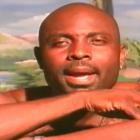ADVERTISEMENT
fadh
Haitian military officer, Lt. Col. Jean-Claude Paul
Here is a picture of former Haitian military officer, Lt. Col. Jean-Claude Paul
Another of Haiti's protectors who led less than a blameless life was military officer, Lieutenant Colonel Jean-Claude Paul. Among his questionable acts was his part, inconspicuous though it was, in the coup against former President Leslie Manigat, his alleged attack against street protesters during election time in the summer of "87, in which over 30 people were killed, and the accusations of drug trafficking against him, the last of which earned him an indictment in a Miami court for cocaine trafficking on march 10, 1988. As with most of his kind, Paul evaded punishment when he died in his suburban home in Haiti on November 7, 1988.
Former Haiti President Prosper Avril arrest in 2001
Former Haitian President and military officer Prosper Avril arrested on charges of plotting against the state,
It made international news in May of 2001 when former Haitian president, Prosper Avril, who was in office from 1988 to 1990, was arrested at a restaurant in popular Petion-Ville, and charged for "plotting against the state." In an almost ironic twist, the scene of the arrest was Avril's book signing for The Black Book of Insecurity, a sort of tell-all focusing on crime victims in Haiti. His arrest that week made the second apprehension of a non-Lavalas party member, a fact which didn't go unnoticed in the then Aristide-run nation.
Prosper Avril, Haitian political figure, President of Haiti from 1988 to 1990
Entrusted by the Duvaliers for the management of much of their overseas portfolio Prosper Avril became President of Haiti from 1988 to 1990
Matthieu Prosper Avril, born near Port-au-Prince in 1937, was Haiti's President between 1988 and 1990. His term began when he led the coup against the transition military government that had been set up following the exile of the second Duvalier government. His career began under the eye of Francois Duvalier, who called him the "Intelligent Prosper Avril." When the President's son came into power, Avril was forced into retirement, but later returned as Colonel in 1986 following the overthrow of Jean-Claude Duvalier's rule and subsequent exile.
Haitian Military guarding the tomb of Francois Duvalier
Here is a picture of three member of FADH Military guarding the tomb of former Haitian Dictator Francois Duvalier
The man was born on April 14, 1907 and would later become a successful physician, during which time he got his nickname for his ability to stave off diseases such as malaria and typhus. Setting himself up with President Dumarsais Estime, he was given the role of Director General of National Public Health in 1946, becoming Minister of Health and Labor 3 years later. In 1950, he stood in opposition of a military coup, and used the fame of his resulting six-year exile, plus his platform as both a populist and a black nationalist, to propel himself to presidency in 1957. By 1964, he declared himself "President for Life" and continued to use his influence to stay in power, exiling any who would oppose him. A fate that was no doubt less severe than that faced by the estimated 30,000 he had killed.
Over the course of his rule, there would be numerous attacks on his life, including the 1967 bombing near to the palace, which resulted in the shooting of 19 President Guard officers. In one of the greatest affronts to Haitian democracy, upon Duvalier's death in 1971, his son Jean-Claude 'Baby Doc' Duvalier, at 19, was named president after him, ushering in a new generation of despotic rule.
Jean-Bertrand Aristide Returned With US Military
Here is a picture of the US force that accompanied Jean-Bertrand Aristide in Haiti after his first exile to the United States. He is accused for allowing Foreign troops to come to haiti. In the past, Jean-Bertrand was very vocal against foreign countries into Haiti.
He became a leading figure in the Ti Legliz movement when he was a Catholic priest
Henri Namphy, military leader, born in Grande-Riviere-du-Nord
Grande-Rivière-du-Nord's Rich Heritage as you are looking at
former Haitian military leader Henri Namphy who was born in Grande-Riviere-du-Nord
Grande-Rivière-du-Nord is a repository of historical events, people, and remnants of its past.
Gallifet Sugar Plantation was the site of a Voodoo incantation, leading to the Haiti Slave Rebellion. A few miles away sits military fortress, Citadel Laferriere, which housed battle contingents.
Grande Rivière gave birth to several rulers including Jean-Jacques Dessalines. Pioneering ethnologist, Jean Price Mars, was also born there.
One fact the town can boast of is a significant number of centenarians, one of few places in Haiti where they exist.
FADH - Haiti Military in Cap-Haitian
Do you know who are in this picture? I just want some old time Haitians from Cap-Haitien to give me the answer.
These people were at one time the the city of Cap-Haitian itself. Many of the new generation probably do not have a clue. I remember those days like yesterday. Although many of them install a notion of fair among the populations. However some how, in some twisted way, they helped to maintain order
Mwin pa konnin kombyen nan nou ki kapab di mwin non moun sa yo ki nan foto sa. Min, anpil vyero nan vill Cap-Haitien konnin moun sa yo tres byen. A on moman, moun sa yo te sel kok chante nan vill sa.
Si ou kapab sonje non kek nan yo, di nou?
Operation Uphold Democracy designed to remove military regime
"Operation Uphold Democracy" was an intervention authorized by the UN Security Council to restore democracy by removing a military regime that overthrew the fairly elected government of Jean-Bertrand Aristide in Haiti, on 30 September, 1991. Under the leadership of Lieutenant General Raoul Cedras, a military coup overthrew President Aristide, a charismatic Roman Catholic priest and the popularly elected president in the Haitian history who won 67% of the vote in a presidential election. The Operation Uphold Democracy involved a peacekeeping force of around 20,000 armed personnel from all five branches of the U.S armed forces, 5,000 Non-U.S forces and assistance of 24 nations. It had a mission to restore a legitimate government and a secure environment for the people in Haiti. The operation successfully assisted the exiled President to return and remain in power till the transitioning of power to the newly elected President Rene Preval on February 7, 1996. Operation Uphold Democracy officially ended with its replacement with the United Nations Mission in Haiti (UNMIH) on March 31 1995.
Forces Armées d'Haïti, FAd'H controlling protest
Here is a picture of Forces Armées d'Haïti, also known as FAD'H controlling a protest.
Haiti is a country without any regular devoted military forces. The last formal armed forces were demobilized in 1995. Haiti's first military was born in the bed of country's slave revolution. The early Haitian leaders emerged from military cadres produced by decade (1791-1804) long warfare which was fundamentally a slave revolt to expel the French out of their colony in Saint-Domingue. Haiti without a strong constitution, had been mostly ruled by force. After the expulsion of the French, the amalgamated armed force got broken down into pieces and took coercive control in every aspect of Haitian governance without any acceptable constitution. In 1987, a decree recommended the formation of a Haitian armed forces, however, that was never properly implemented till 1989 and the crude built up that came out was finally abolished in 1995. Practically, Haiti has no present external threats other than the occasional tension with its neighbor Dominican Republic over a border fixed in 1936. The presence of U.S. military in Haiti is enough to stall attack on the country.

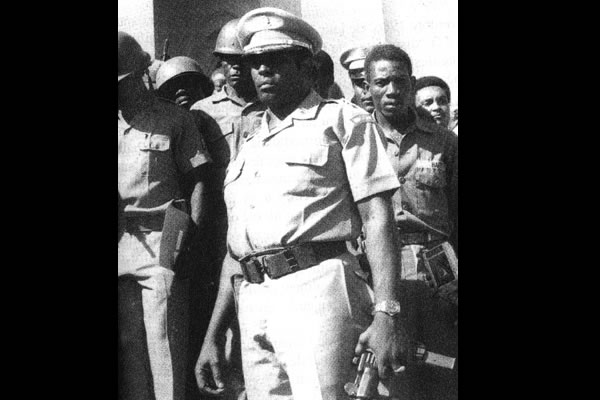
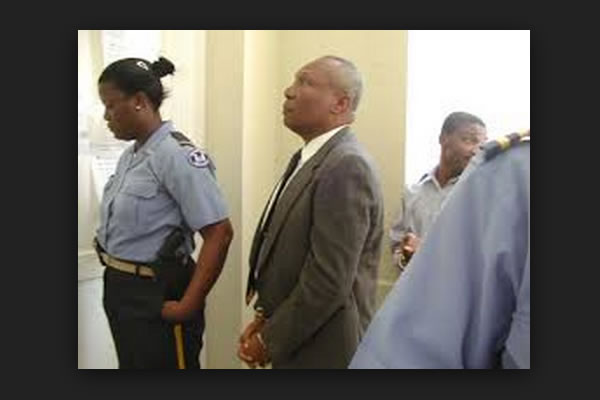
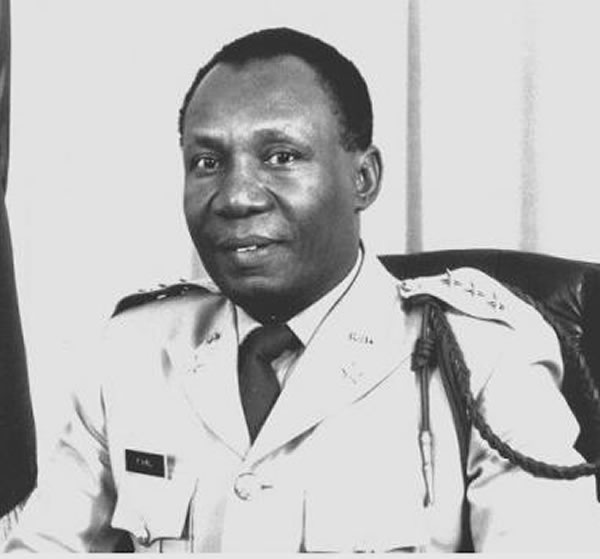
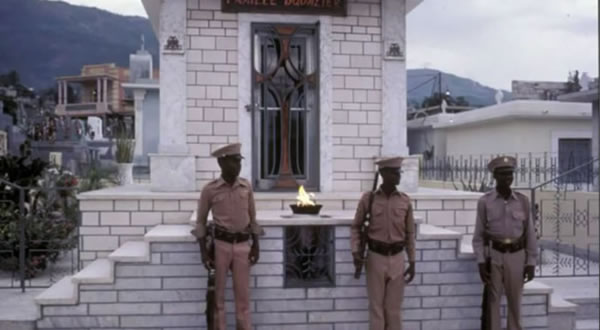
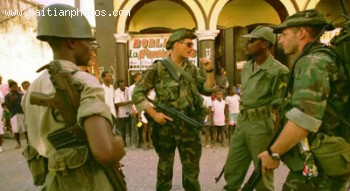
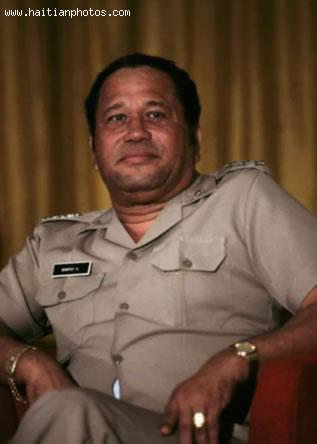
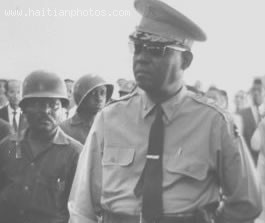
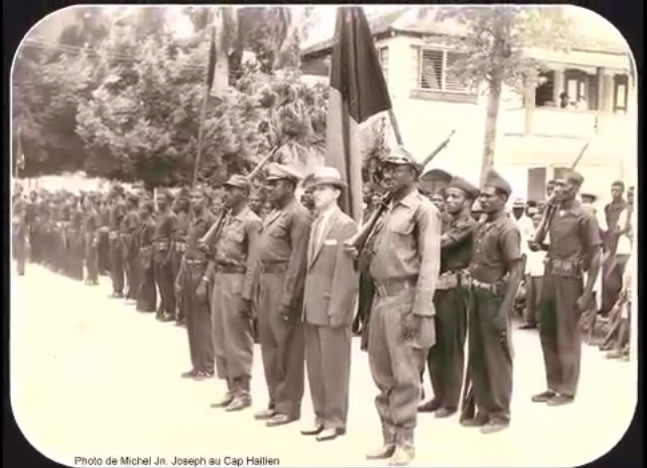
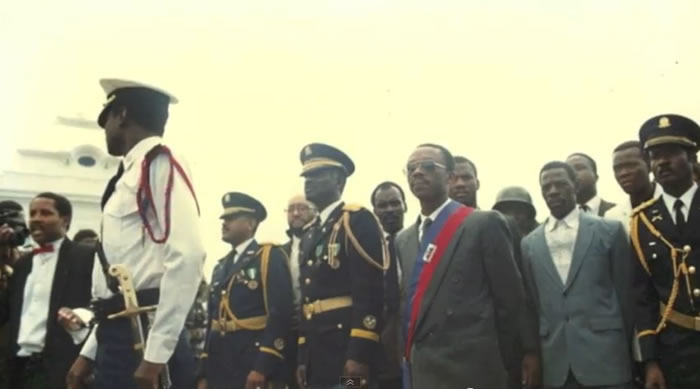
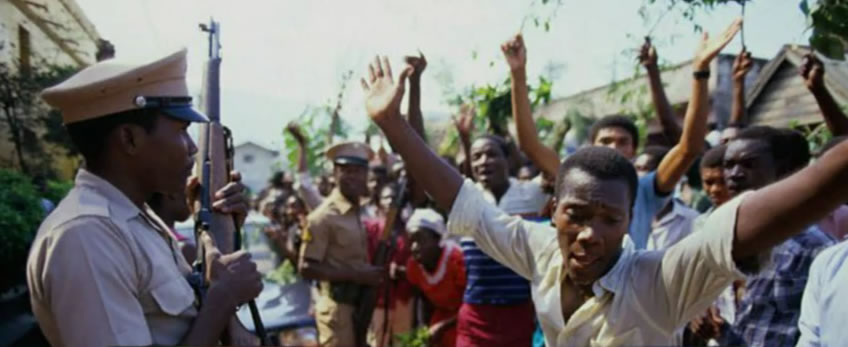
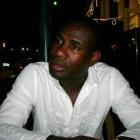 Jounalis Phares Duverne mouri
Jounalis Phares Duverne mouri 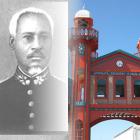 President Florvil Hyppolite Haiti's famed Iron Market
President Florvil Hyppolite Haiti's famed Iron Market  Jean Gesner Henry Jr aka Coupé Cloue Junior shot dead
Jean Gesner Henry Jr aka Coupé Cloue Junior shot dead 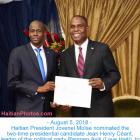 Jovenel Moïse nominated Jean Henry Céant as prime minister of...
Jovenel Moïse nominated Jean Henry Céant as prime minister of...  Jean Henry Céant deposited documents in Parliament for...
Jean Henry Céant deposited documents in Parliament for... 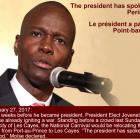 Jovenel Moise, the president has spoken. Period
Jovenel Moise, the president has spoken. Period  Dr. Henri Ford, First Haitian Dean At University of Miami Med...
Dr. Henri Ford, First Haitian Dean At University of Miami Med... 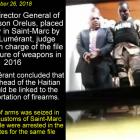 Former PNH Chief, Godson Orelus, arrested for illegal arm...
Former PNH Chief, Godson Orelus, arrested for illegal arm... 